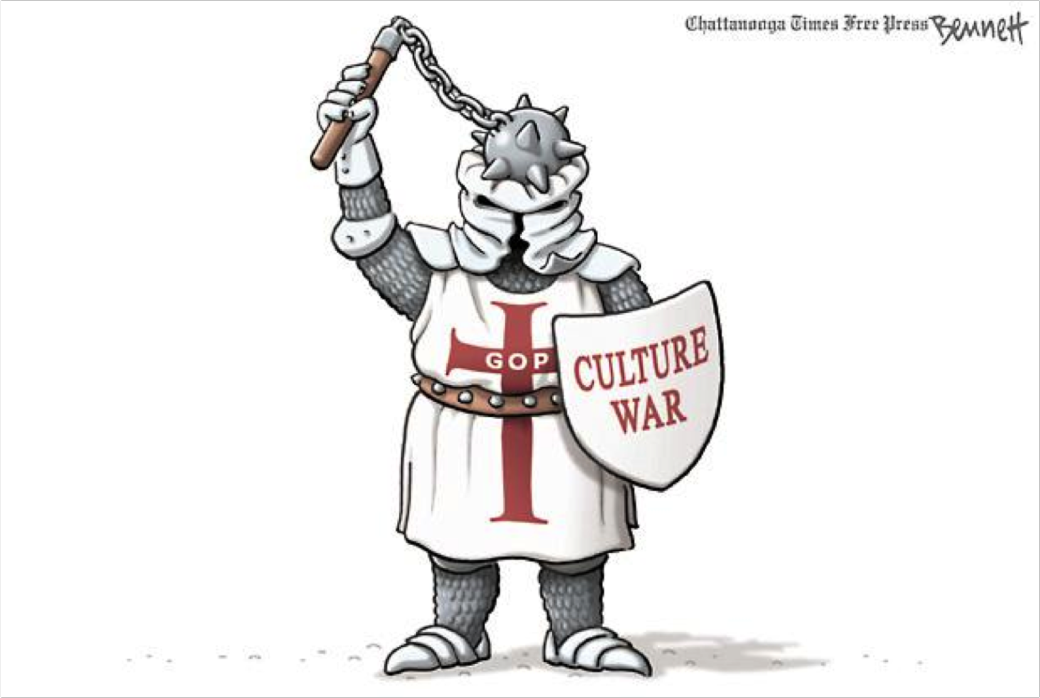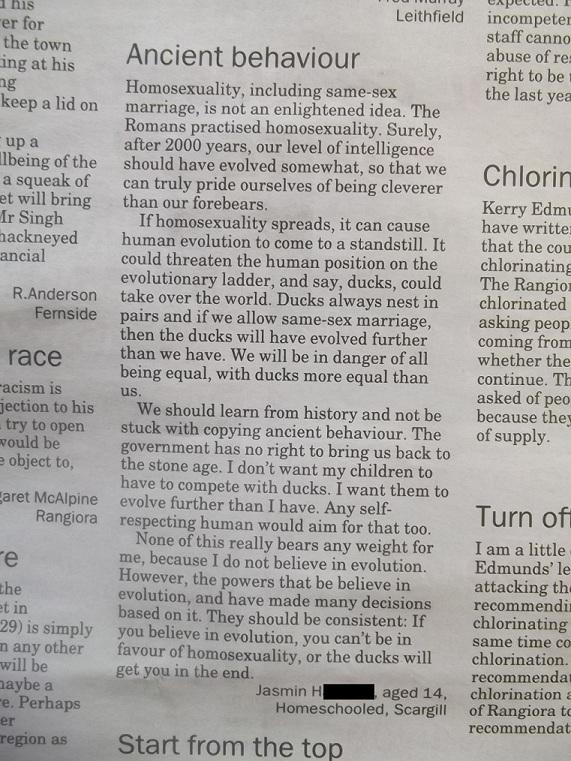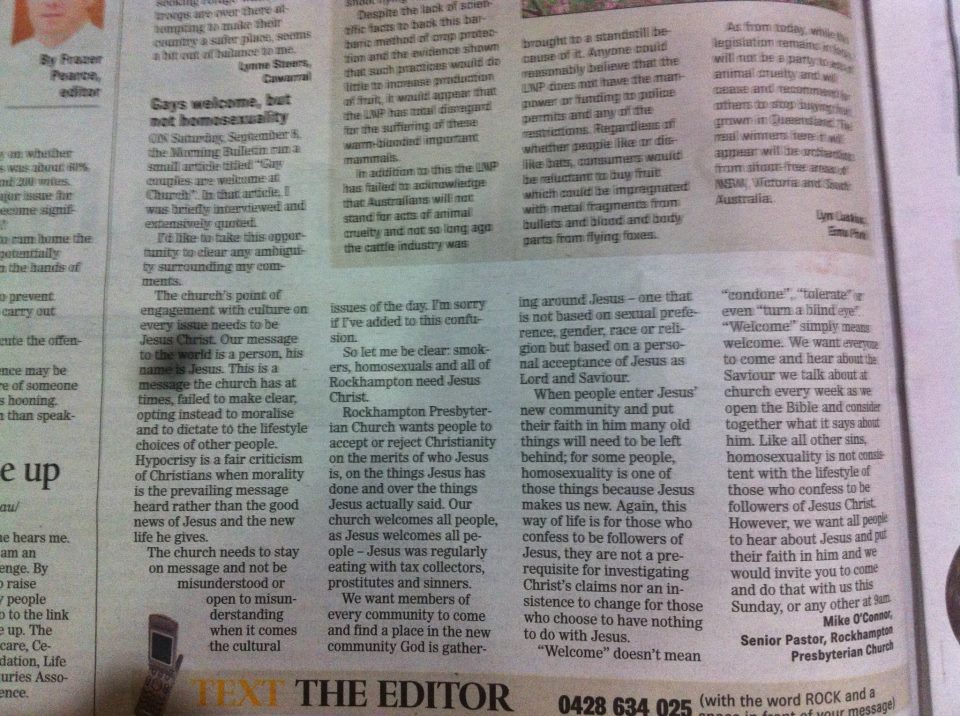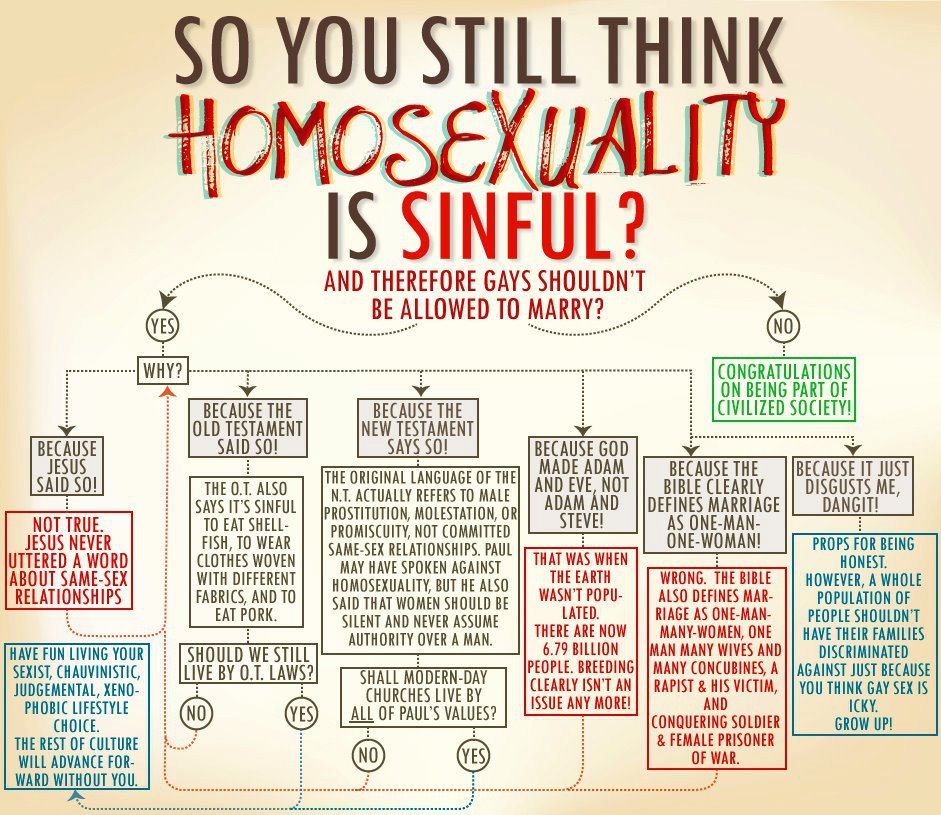It feels like a long time since I’ve written about gay marriage. It feels like a long time since I’ve written about Kevin Rudd. It feels like a long time since I’ve written about the ACL. It feels like a long time since I’ve written about anything much. But here goes…
The “Current” Background
The gay marriage debate is firing up again because the Australian Greens are going to introduce a bill to parliament. The bill is, at this point, destined to fail, because while the Labor party has given its members a conscience vote, the opposition is keeping their members in lock-step with their pre-election commitments on marriage. Kevin Rudd, a Christian politician, has decided to vote in favour of an amendment to the marriage act. The Australian Christian Lobby has said something dumb and inflammatory in response.
The Background on K-Rudd
Kevin Rudd is Australia’s former Prime Minister. He was knifed and unceremoniously dumped from the job by his deputy and a bunch of “faceless men”… Though he sits on the political left he’s been something of a darling to the Christian Right, because he is a politician who takes his faith seriously. Read his Bonhoeffer Essay published in Australia’s high brow “intellectual” mag, The Monthly in October 2006. Before he was Prime Minister.
I’m not a huge fan of Rudd’s. He often seems robotic and calculated. But I respect him – his approach to political campaigning was positive and refreshing, and he is a man of principle – sticking to his word in a recent leadership coup even though it cost him hugely. But I do like the thoughtfulness he applies to the question of the relationship between church and state. This is from the Bonhoeffer essay linked above:
“For its first three centuries, Christianity had represented an active counterculture, but what was to be Christianity’s message in a new age in which the church had become culturally dominant? This became the continuing challenge of Christianity in the Christian West for the subsequent 1500 years.
Over the last 200 years, however, we have seen an entirely different debate arise, as Christianity has sought to come to terms with a rising and increasingly rampant secularism. The impact of independent scientific enquiry, the increasing impact of secular humanism itself, combined with the pervasive influence of modernism and postmodernism, have had the cumulative effect of undermining the influence of the mainstream Catholic and Protestant churches across the West.
Where this will lead, as Christianity enters its third millennium, remains to be seen. But there are signs of Christianity seeing itself, and being seen by others, as a counterculture operating within what some have called a post-Christian world. In some respects, therefore, Christianity, at least within the West, may be returning to the minority position it occupied in the earliest centuries of its existence. But whether or not we conclude that Christianity holds a minority or a majority position within Western societies, that still leaves unanswered the question of how any informed individual Christian (or Christians combined in the form of an organised church) should relate to the state.”
Here’s Rudd’s conclusion for how Christians should engage in the political process:
“I argue that a core, continuing principle shaping this engagement should be that Christianity, consistent with Bonhoeffer’s critique in the ’30s, must always take the side of the marginalised, the vulnerable and the oppressed.”
He says, a bit later:
“The function of the church in all these areas of social, economic and security policy is to speak directly to the state: to give power to the powerless, voice to those who have none, and to point to the great silences in our national discourse where otherwise there are no natural advocates.”
He identifies five approaches that Christians take to politics.
1. Vote for me because I’m a Christian.
“This is the model that is most repugnant. It is the model which says that, simply on the basis of my external profession of the Christian faith, those of similar persuasion should vote for me.”
2. Vote for me because I’m a morally conservative Christian and tick the right boxes on your sexual morality tests.
These tests tend to emphasise questions of sexuality and sexual behaviour. I see very little evidence that this pre-occupation with sexual morality is consistent with the spirit and content of the Gospels. For example, there is no evidence of Jesus of Nazareth expressly preaching against homosexuality. In contrast, there is considerable evidence of the Nazarene preaching against poverty and the indifference of the rich.
3. Vote for me because I’m a morally conservative Christian and I’m into family values.
4. Combine all of these, but then respond negatively when someone suggests there might be a political position to be taken on economic policy, not just moral policy.
5. Believe the gospel is both a political and social gospel.
In other words, the Gospel is as much concerned with the decisions I make about my own life as it is with the way I act in society. It is therefore also concerned with how in turn I should act, and react, in relation to the state’s power. This view derives from the simple principle that the Gospel which tells humankind that they must be born again is the same Gospel which says that at the time of the Great Judgement, Christians will be asked not how pious they have been but instead whether they helped to feed the hungry, clothe the naked and visit the lonely. In this respect, the Gospel is an exhortation to social action. Does this mean that the fundamental ethical principles provide us with an automatic mathematical formula for determining every item of social, economic, environmental, national-security and international-relations policy before government? Of course not. What it means is that these matters should be debated by Christians within an informed Christian ethical framework.
K-Rudd and I share a vehement rejection of approaches 1-4. We both think there’s a roll for Christians to play in advocating for the voiceless, not lobbying for our own special interests. There’s a pretty obvious dig at the approach the Australian Christian Lobby (not to be confused with the Australian Cat Ladies) takes to politics in this article.
But fundamentally, though I will agree with our former Prime Minister on the wide ranging implications for the gospel on how we conceive of politics, ethics, and society, I don’t think he’s really grasped the magnitude of how the Gospel’s content – the crucified Lord who calls us to take up our cross, follow him, and die to self – the qualities he so admires in Bonhoeffer’s understanding of the gospel at a social and political level – applies to the moral and sexual sphere of the Christian life. Jesus is Lord over sexual morality, just as he is Lord over workplace relations policy.
Which leads me to the current situation…
Kevin Rudd’s changing opinion on Gay Marriage
Kevin Rudd has applied this rubric for the relationship between church and state to the question of gay marriage, and arrived at this conclusion (posted on his blog overnight):
I have come to the conclusion that church and state can have different positions and practices on the question of same sex marriage. I believe the secular Australian state should be able to recognise same sex marriage. I also believe that this change should legally exempt religious institutions from any requirement to change their historic position and practice that marriage is exclusively between a man and a woman. For me, this change in position has come about as a result of a lot of reflection, over a long period of time, including conversations with good people grappling with deep questions of life, sexuality and faith.
I’ve suggested in the past that this is, I think, the way forward in a secular democracy (short of the government simply legislating civil unions for everybody). I’m sure there are good natural arguments (ie non-Christian arguments) against gay marriage. I’m not sure those arguments are “marriage is for making children”… That would seem to rule out a greater purpose for marriage for people who know they are infertile, or people who are elderly. Which will, no doubt, bring me to the ACL. Shortly.
Lets parse the problems with Rudd’s statement from the Christian side of the ledger – rather than the political side. He’s making a potentially correct political decision, given the system he operates in, from incorrect theology. Incorrect theology that is there in the Bonhoeffer thing. If Jesus can’t make claims over our sexuality – our “natural” state – then he’s no Lord at all. He calls us to come and die in every area of our life. Including our natural, hard-wired, sexual urges.
Here’s Rudd’s narrative.
“One Saturday morning in Canberra, some weeks ago, a former political staffer asked to have a coffee. This bloke, who shall remain nameless, is one of those rare finds among political staffers who combines intelligence, integrity, a prodigious work ethic, and, importantly, an unfailing sense of humour in the various positions he has worked in around Parliament House. Necessary in contemporary politics, otherwise you simply go stark raving mad.
And like myself, this bloke is a bit of a god-botherer (aka Christian). Although a little unlike myself, he is more of a capital G God-Botherer. In fact, he’s long been active in his local Pentecostal Church.
Over coffee, and after the mandatory depressing discussion about the state of politics, he tells me that he’s gay, he’s told his pastor (who he says is pretty cool with it all, although the same cannot be said of the rest of the church leadership team) and he then tells me that one day he’d like to get married to another bloke. And by the way, “had my views on same sex marriage changed?”.”
So, to recap, for those who skip over quotes, a staffer Rudd respects, a Christian, is gay and wants to marry a man. So Rudd has had a rethink on his opposition to gay marriage.
Very few things surprise me in life and politics anymore. But I must confess the Pentecostal staffer guy threw me a bit. And so the re-think began, once again taking me back to first principles. First, given that I profess to be a Christian (albeit not a particularly virtuous one) and given that this belief informs a number of my basic views; and given that I am given a conscience vote on these issues; then what constitutes for me a credible Christian view of same sex marriage, and is such a view amenable to change? Second, irrespective of what that view might be, do such views have a proper place in a secular state, in a secular definition of marriage, or in a country where the census tells us that while 70% of the population profess a religious belief, some 70% of marriages no longer occur in religious institutions, Christian or otherwise.
These are the two questions.
He starts to move the goalposts a little on the “Christian view” thing by playing the “literalist” card. Now. I’m a Biblical Literalist. I do not think it means what Rudd think it means, or what many extreme Biblical Literalists think it means. I think Biblical literalism means reading a text in its context, trying to understand what the author literally meant, and in part that comes from understanding what the original audience would understand something to literally mean.
“In fact if we were today to adhere to a literalist rendition of the Christian scriptures, the 21st century would be a deeply troubling place, and the list of legitimized social oppressions would be disturbingly long.”
This is a purely speculative begged question – and it ignores the contribution to the 21st century made by Bonhoeffer’s contribution to the 20th century. He also throws Wilberforce under a bus. It’ll surprise Wilberforce to one day learn that people considered he was ignoring the plain meaning of the Bible when he opposed slavery.
Here’s Rudd’s guide to reading the Bible.
The Bible also teaches us that people should be stoned to death for adultery (which would lead to a veritable boom in the quarrying industry were that still the practice today). The same for homosexuals. And the biblical conditions for divorce are so strict that a woman could be beaten within an inch of her life and still not be allowed to legally separate.
The point is that nobody in the mainstream Christian Church today would argue any of these propositions. A hundred years ago, that was not necessarily the case. In other words, the definition of Christian ethics is subject to change, based on analysis of the historical context into which the biblical writers were speaking at the time, and separating historical context from timeless moral principles, such as the injunction to “love your neighbour as yourself”.
Nobody in the mainstream church has argued for stoning adulterers, with any credibility, since Jesus stopped the angry mob stoning an adulteress, or since Jesus met a divorced, adulterous, Samaritan woman at the well. The very model of the oppressed whom Bonhoeffer says we should be looking out for – and Jesus claims to be the promised king of the Old Testament and doesn’t stone her. Clearly the plain reading of the Old Testament, so far as Jesus was concerned – and he’s better positioned to read it than we are, as a Jew, and as God.
Christian ethics aren’t subject to change. Christian ethics are the ethics of the cross. It’s not just “love your neighbour” – Christian ethics are a call to deny yourself and to love your enemy.
Rudd presents such an anaemic view of Christian ethics here that it’s not surprising his conclusion is theologically incoherent.
The call for all people who follow Jesus is that we die to self, die to our desire to base our identity on our sexual orientation – gay, straight, bi, or otherwise – there is no unbroken sexual orientation – and if we do want to pursue sexual intimacy, regardless of orientation, Jesus affirms the traditional view of marriage.
Here’s a thing Jesus says when he also shows that K-Rudd is wrong about divorce.
3 Some Pharisees came to him to test him. They asked, “Is it lawful for a man to divorce his wife for any and every reason?”
4 “Haven’t you read,” he replied, “that at the beginning the Creator ‘made them male and female,’5 and said, ‘For this reason a man will leave his father and mother and be united to his wife, and the two will become one flesh’? 6 So they are no longer two, but one flesh. Therefore what God has joined together, let no one separate.”
7 “Why then,” they asked, “did Moses command that a man give his wife a certificate of divorce and send her away?”
8 Jesus replied, “Moses permitted you to divorce your wives because your hearts were hard. But it was not this way from the beginning. 9 I tell you that anyone who divorces his wife, except for sexual immorality, and marries another woman commits adultery.”
10 The disciples said to him, “If this is the situation between a husband and wife, it is better not to marry.”
11 Jesus replied, “Not everyone can accept this word, but only those to whom it has been given. 12 For there are eunuchs who were born that way, and there are eunuchs who have been made eunuchs by others—and there are those who choose to live like eunuchs for the sake of the kingdom of heaven. The one who can accept this should accept it.”
Some people won’t have sex because being part of the Kingdom of God calls them to that. We’re really bad at acknowledging that category, culturally, and in our church. I suspect singleness would be much easier if we were better at looking out for those who are single. So that it’s not a cross they bear alone.
Anyway.
It’s hard not to read this following bit in the light of his conversation with his friend – and suspect that it underpins his theological move.
“Which brings us back to same sex marriage. I for one have never accepted the argument from some Christians that homosexuality is an abnormality. People do not choose to be gay. The near universal findings of biological and psychological research for most of the post war period is that irrespective of race, religion or culture, a certain proportion of the community is born gay, whether they like it or not. Given this relatively uncontested scientific fact, then the following question that arises is should our brothers and sisters who happen to be gay be fully embraced as full members of our wider society? The answer to that is unequivocally yes, given that the suppression of a person’s sexuality inevitably creates far greater social and behavioural abnormalities, as opposed to its free and lawful expression. “
Rudd’s statement would be heaps better if he just said: “We are a secular democracy, and people in our secular democracy desire something, and the only good reason not to appears to come from a religious understanding of the thing.” By trying to play theologian he has left himself a little open to criticism.
The Bible says that humanity is born sinful. That we’re born with a natural propensity to sin. It shouldn’t be a huge jump for Christian theology to acknowledge that homosexuality is natural – it’s only a problem if we think our nature is a pristine, untainted, God honouring canvas. The image we bear of God in Genesis 1 is broken in Genesis 3.
Jesus is the image of God (Colossians 1:15), and calls people to come and die. Like he did. But if you’re not coming and dying then I am not so sure you can be called not to base your identity on anything you want – including your sexuality. Including defining your relationships using the word “marriage.” That’s why Rudd should have left the theology alone and just gone with the politics. He’s better at that.
Rudd moves from the theological point to the argument from nature about children needing a mother and father. I believe that in the ideal circumstances this is true (though I’m sympathetic to the idea that an emotionally healthy child needs much more than just a mother and a father – who love them sacrificially, they need a “village”). But I also, like Rudd, believe that we’re a long way from the ideal.
“Which brings us to what for some time has been the sole remaining obstacle in my mind on same sex marriage – namely any unforeseen consequences for children who would be brought up by parents in a same sex married relationship, as against those brought up by parents in married or de-facto heterosexual relationships, by single parents, or by adoptive or foster parents, or other legally recognised parent or guardian relationships. The care, nurture and protection of children in loving relationships must be our fundamental concern. And this question cannot be clinically detached from questions of marriage – same sex or opposite sex. The truth is that in modern Australia approximately 43 per cent of marriages end in divorce, 27 per cent of Australian children are raised in one parent, blended or step-family situations, and in 2011-12 nearly 50,000 cases of child abuse were substantiated by the authorities of more than 250,000 notifications registered. In other words, we have a few problems out there.
That does not mean, by some automatic corollary, that children raised in same sex relationships are destined to experience some sort of nirvana by comparison. But scientific surveys offer important indications. One of the most comprehensive surveys of children raised in same sex relationships is the US National Longitudinal Survey conducted since 1986 – 1992 (and still ongoing) on adolescents raised by same sex partners. This survey, published in the Journal of the American Academy of Paediatrics in 2010, concluded that there were no Child Behaviour Checklist differences for these kids as against the rest of the country”
These longitudinal studies are interesting. I do wonder what the results would look like if you reverse engineered the ideal parenting situation from the outcome of parenting. If you asked a bunch of successful and emotionally healthy adults about their background – if you didn’t take a broad cross section to measure against the average, but selected some sort of high achievement criterion. Maybe that study is out there somewhere. But anyway, Rudd makes the point that the horse has already bolted on this front…
“Either as a result of previous opposite-sex relationships, or through existing state and territory laws making assisted reproduction, surrogacy, adoption and fostering legally possible for same sex couples or individuals in the majority of Australian states and territories. Furthermore, Commonwealth legislation has already recognised the legal rights of children being brought up in such relationships under the terms of Australian family law.”
One thing I do appreciate is the tone Rudd has brought to the debate – he acknowledges that this is his opinion, and that people, like Julia Gillard, will use their own consciences and reasons to develop their own convictions. This is what life in a democracy is about.
So good on him for that.
Which brings me to the ACL.
The ACL is apparently indignant that a back bench MP would dare exercise his right to conscience. They’ve taken a leaf from the Greens, their political nemesis, in comparing this policy decision to the stolen generation.
Here’s Christine Milne’s impassioned statement about a recent asylum seeker decision.
“In 10, 15, 20 years when there is a national apology to the children detained indefinitely in detention for the sole, supposed crime of seeking a better life in our country because they are running away for persecution with their families, not one of you will be able to stand up and say “Oh we didn’t, oh, it was the culture of the period.”
That’s a nice piece of rhetoric – but it’ll only take so long before this becomes the Australian equivalent of Godwin’s Law. The ACL is working on it…
Here’s the title of their Media Release.
Rudd’s change on marriage sets up a new stolen generation
Really?
Do go on.
The Prime Minister who rightly gave an apology to the stolen generation has sadly not thought through the fact that his new position on redefining marriage will create another.
Australian Christian Lobby Managing Director Lyle Shelton said Kevin Rudd’s overnight change of mind on redefining marriage ignored the consequence of robbing children of their biological identity through same-sex surrogacy and other assisted reproductive technologies.
“What Kevin Rudd has failed to consider is that marriage is a compound right to form a family. Marriage is not just an affectionate relationship between two people regardless of gender.
I’m sympathetic to this argument. I’m just not sure it’s a particularly Christian argument. It’s a politically conservative argument based on concepts of personhood that admittedly come from the Christian tradition. But it doesn’t seem particularly informed by the person of Jesus. The Jews could own this position.
This is a nice call to take the question of the raising of children away from selfishness:
“What Mr Rudd has not considered is whether or not it is right for children to be taken through technology from their biological parent so that ‘married’ same-sex couples can fulfil their desires.”
This objection is just weird. I would hope that given the sexual health issues in the homosexual community we would want some sort of education to happen to prevent these issues (oh wait, the ACL has form in this area on sexual health billboards, and with those smoking claims).
Mr Shelton said Mr Rudd had also ignored the fact that this inevitably means parents will have their children taught the mechanics of homosexual sex in school sex education classes, something that would surely follow the redefinition of marriage.
Here’s a little case of adopting the “if you can’t beat ’em, join ’em” mantra while trying to have one’s cake and eat it too. Read the heading of this media release again, and then read this rebuke…
“The so-called ‘marriage equality’ debate has been conducted by slogans without proper consideration of the consequences. Kevin Rudd is the latest to fall victim to shallow thinking on this issue,” Mr Shelton said.
The ACL is disappointed in Rudd – not primarily because his theological account of sexuality misrepresents the Gospel. But because. Umm. Marriage.
“Mr Rudd’s announcement that he supports same sex marriage will be a huge disappointment for Christians and leaves their hopes for the preservation of marriage clearly with the Coalition and Christian-based minor parties.
Oh. And because it’s bad politics because it doesn’t protect the bigger minority from the smaller…
“No government has the right to create these vulnerabilities for the church-going twenty per cent of the population in order to allow the point two per cent who will take advantage of this to redefine marriage,” he said.
And now Christians won’t vote for him. Because the ACL speaks for Christians.
“Mr Rudd seems intent on burning bridges not only with colleagues, but with a constituency which had long given him the benefit of the doubt,” Mr Shelton said.
“Something is either true and demands our support, or not. The truth doesn’t change with popular opinion, to which he is now saying he seems to be responding.”
“If this is an attempt to wedge Julia Gillard, it will cost Mr Rudd the last of his following in the Christian Constituency,” Mr Shelton said.
And finally. When it comes to the question of the theological stuff, where you might expect something related to the gospel, we get another statement that the Australian Sharia Law Lobby would be happy to sign up to if we changed “Christian teaching” to “God’s Law”.
His views on homosexuality and changing the definition of marriage are not in line with orthodox Christian teaching.
“All major Australian church denominations officially oppose same sex marriage and over 50 of Australia’s most prominent church and denominational leaders signed a statement against it in August 2011.”
The ACL is playing the game that K-Rudd pointed out is a problematic game for Christians in his Monthly article. Jesus calls us to come and die. He calls us to die to our sexual desires in order to submit to his Lordship. That’s where Kevin goes wrong. The ACL goes wrong not because they think Jesus is only interested in our sexuality – they’re trying to speak out for children too. Clearly. Or they wouldn’t use such dumb headings. They go wrong when they try to make Jesus the Lord of petty politics. On the one hand the ACL’s Lyle Shelton says “things are either true or they aren’t” and on the other he argues against certain courses of action because the political numbers are bad. Their whole model is broken.
Christians don’t take up our cross by railing against the political empire from a position of power – for starters, the political empire put Jesus to death. Or by playing the political game as though might makes right. There’s not much of a theology of the cross being displayed in the ACL’s statement.
K-Rudd should have left the theology and focused on the politics. The ACL should have left out the politics and focused on the theology (Jesus). Church and state should listen to each other. Especially when everyone is claiming they’re trying to follow Jesus. If you want to do politics like Jesus you’ve got to do politics shaped by the cross. If you want to speak theology about politics you’ve got to show how your theology relates to the cross. If you want to speak as Christians about politics why would you not speak of politics in the light of the cross?
Jesus’ pitch is the same for everybody. It’s not just about the poor, or about social justice – we’re all oppressed. We’re all broken. We all need intervention.
24 Then Jesus said to his disciples, “Whoever wants to be my disciple must deny themselves and take up their cross and follow me. 25 For whoever wants to save their life will lose it, but whoever loses their life for me will find it. 26 What good will it be for someone to gain the whole world, yet forfeit their soul? Or what can anyone give in exchange for their soul? (Matt 16).







